Team
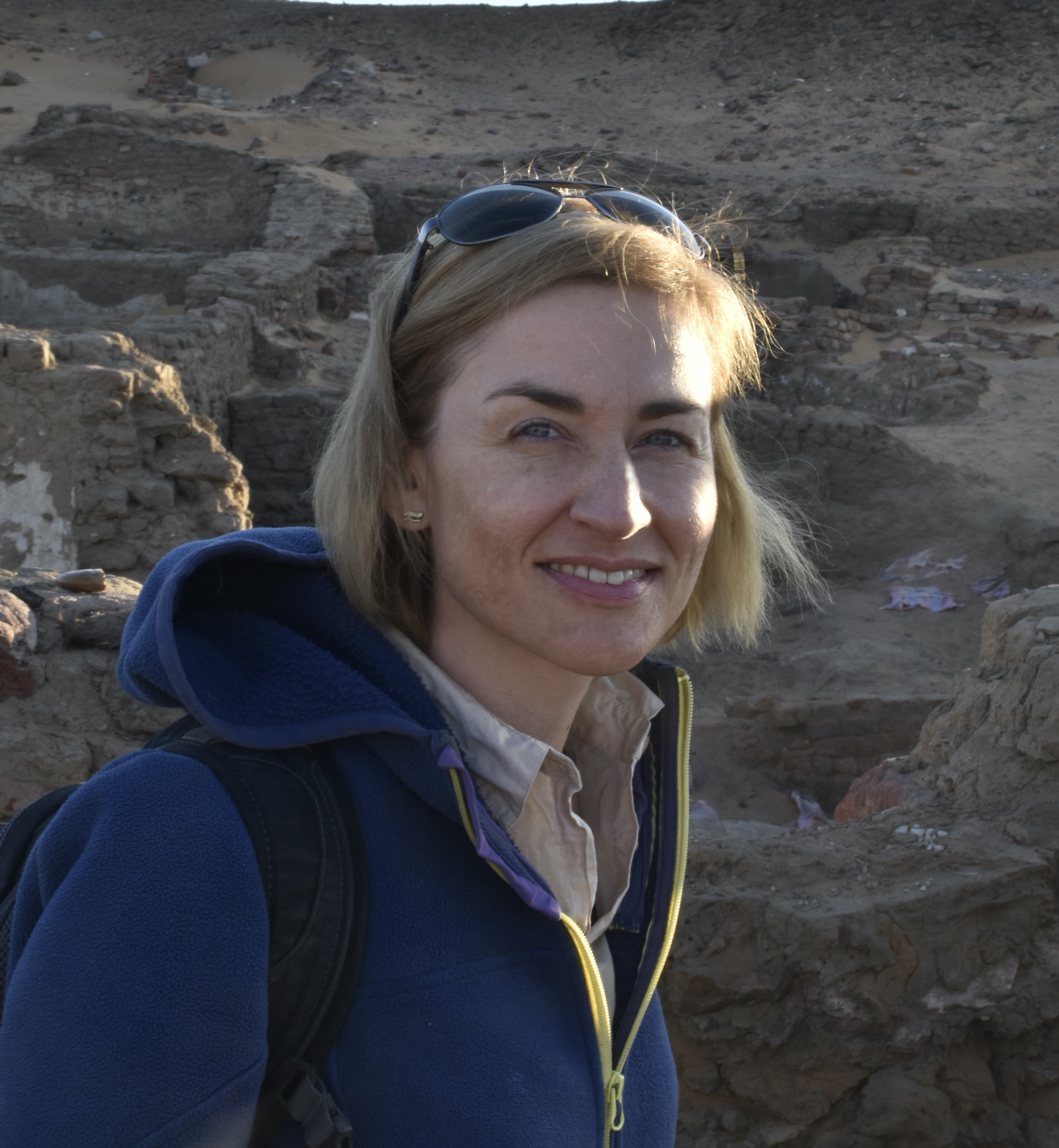
Dorota Dzierzbicka
Archaeologist
Polish Centre of Mediterranean Archaeology, University of Warsaw
d.dzierzbicka@uw.edu.pl
Dr Dorota Dzierzbicka is an archaeologist specialising in Mediterranean archaeology, with expertise in the material culture and economic history of Graeco-Roman and Late Antique Egypt. She holds a PhD from the University of Warsaw and is an Assistant Professor at the Polish Centre of Mediterranean Archaeology, University of Warsaw. She has extensive fieldwork experience in Egypt and Sudan and currently serves as Director of the Polish-Egyptian Expedition to Marina el-Alamein. In the Berenike Project, she works as a trench supervisor, overseeing excavation and documentation. Her research focuses on trade, exchange, and the integration of archaeological and documentary evidence to reconstruct ancient economies and everyday life, and she has authored and co-authored numerous interdisciplinary publications on these topics.
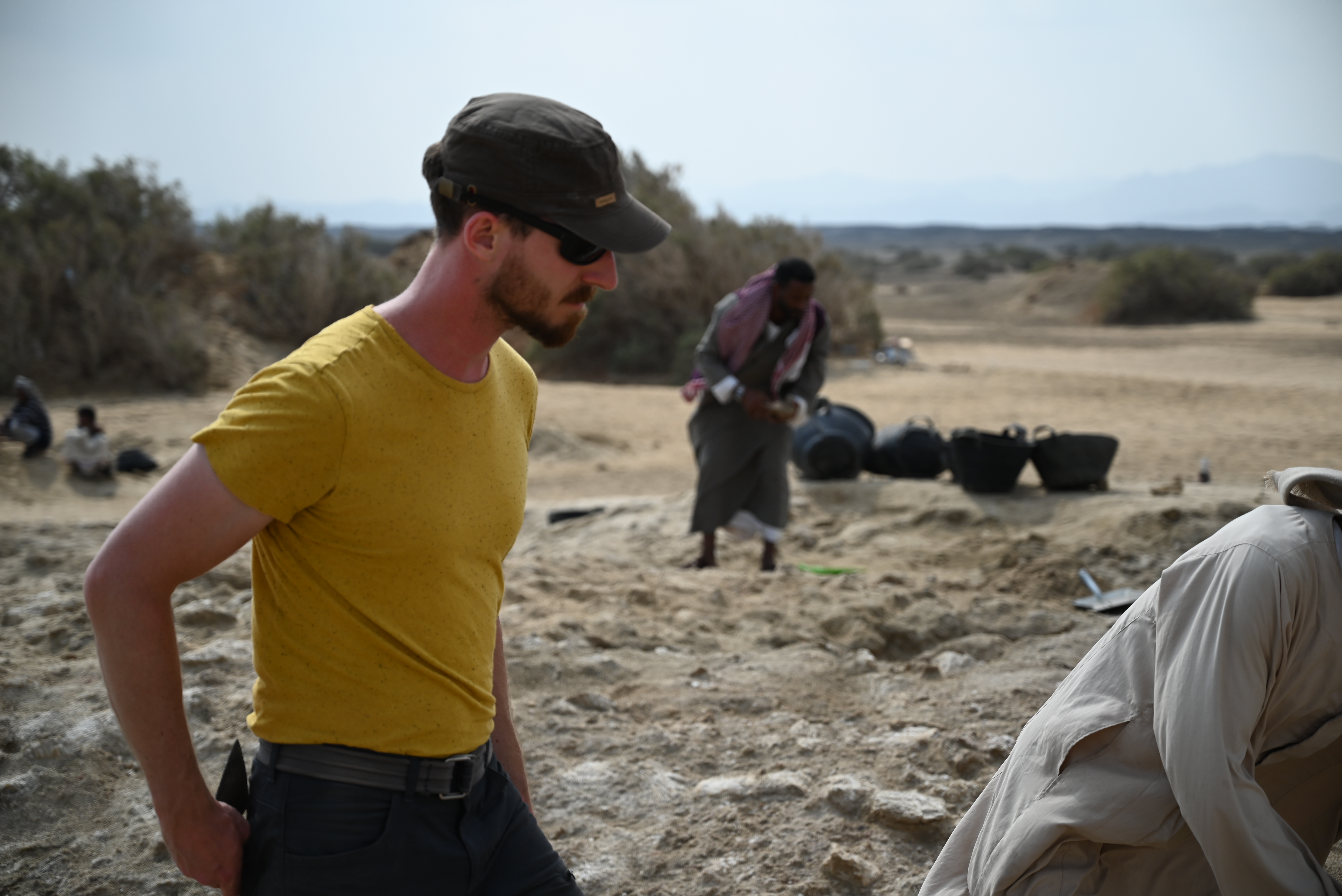
Maciej Wyżgoł
Archaeologist
Polish Centre of Mediterranean Archaeology, University of Warsaw
maciej.wyzgol@uw.edu.pl
Dr Maciej Wyżgoł is an archaeologist specialising in African archaeology, with a particular focus on household and urban archaeology, and identity. He holds a PhD from the University of Warsaw (2023) and is Head of the Department of African Studies at the Polish Centre of Mediterranean Archaeology, University of Warsaw. He has extensive fieldwork experience as a long-term member of the archaeological expedition to Old Dongola, and has also participated in other archaeological projects in Sudan, Lebanon, and Egypt. Dr Wyżgoł has authored and co-authored numerous interdisciplinary publications on household archaeology, the archaeology of identity and geoarchaeology. In the Berenike Project, he serves as a trench supervisor and carries out research on households.
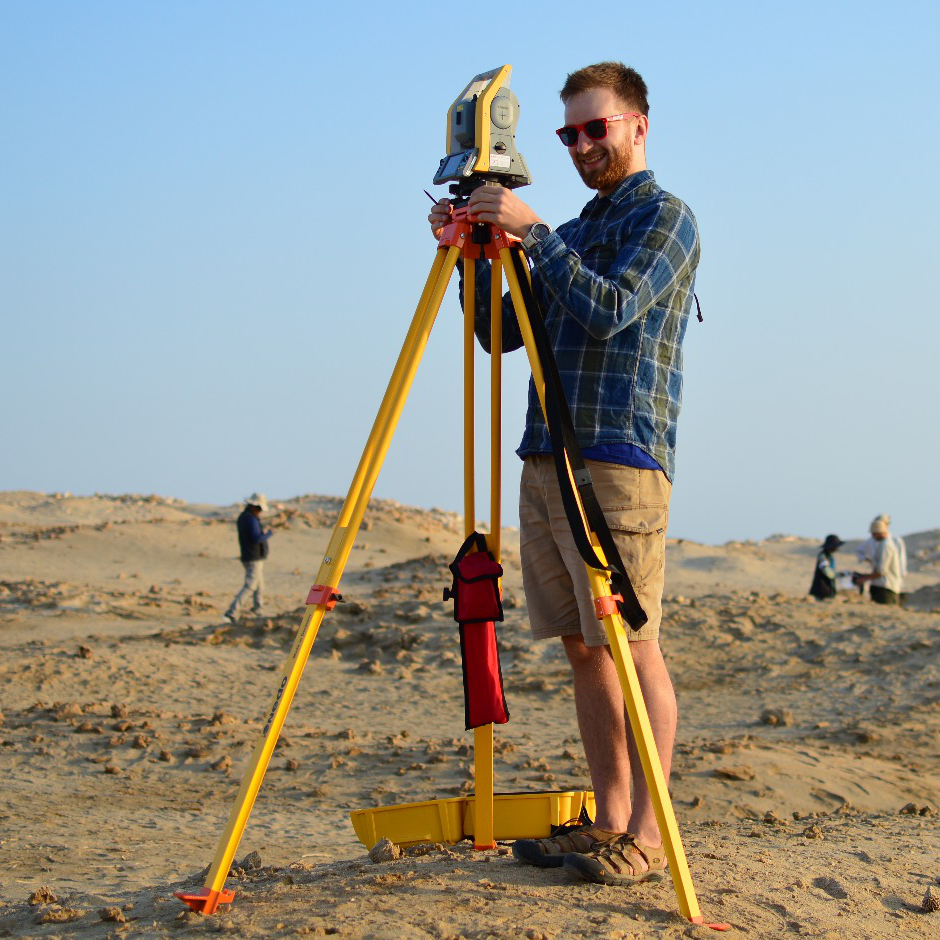
Michał Wiktorzak
Photogrammetrist, GIS specialist
michal.wiktorzak@gmail.com
Combining expertise in close-range photogrammetry and spatial analysis, he handles precise field measurements using cameras and geodetic instruments. With a strong background in GIS and Python-based automation, he develops efficient workflows for processing and analyzing spatial data. Within the Berenike Project he is responsible for measurements, spatial analysis and creation of 3D models of site.
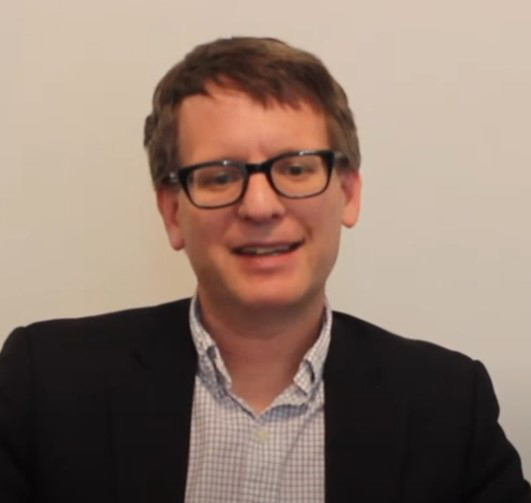
Rodney Ast
Papyrologist
Institute for Papyrology at Heidelberg University
ast@uni-heidelberg.de
Rodney Ast is Academic Director in the Institute for Papyrology at Heidelberg University and, since 2025, co-director of the Polish–German mission in Berenike. His interests are in Greek and Latin papyrology and epigraphy, the archaeology and history of Greco-Roman Egypt and Red Sea/Indian Ocean trade. He participated in fieldwork in Amheida in the Dakhleh Oasis from 2009 to 2015. He has been involved in the Berenike project since 2009 and as co-director of the Isis Temple project since 2019. He has authored numerous editions and studies of texts from both places and is currently preparing a monograph about Berenike.
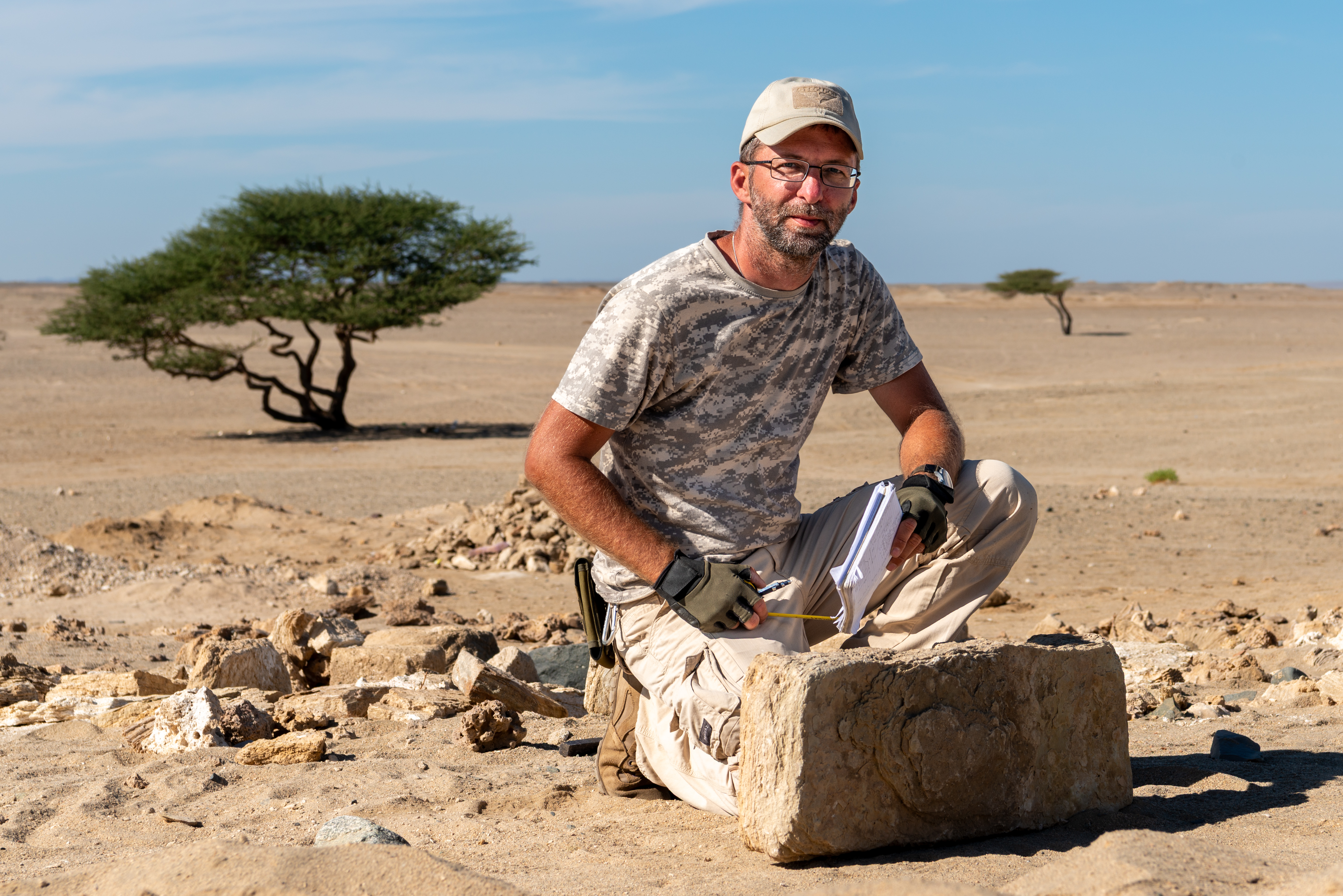
Dawid Wieczorek
Egyptologist
Polish Centre of Mediterranean Archaeology, University of Warsaw
dawidfwieczorek@uw.edu.pl
Dawid is a passionate archaeologist affiliated with the Polish Centre of Mediterranean Archaeology. With PhD in archaeology from the University of Warsaw, his research focuses on epigraphy of ancient Egyptian temples, stone blocks dressing technology, and field archaeology. With extensive experience in documenting and supervising archaeological excavations in Egypt and beyond, he brings a wealth of expertise to the team. In Berenike, he is responsible for analyzing stone building material from excavations at the Blemmyan necropolis.
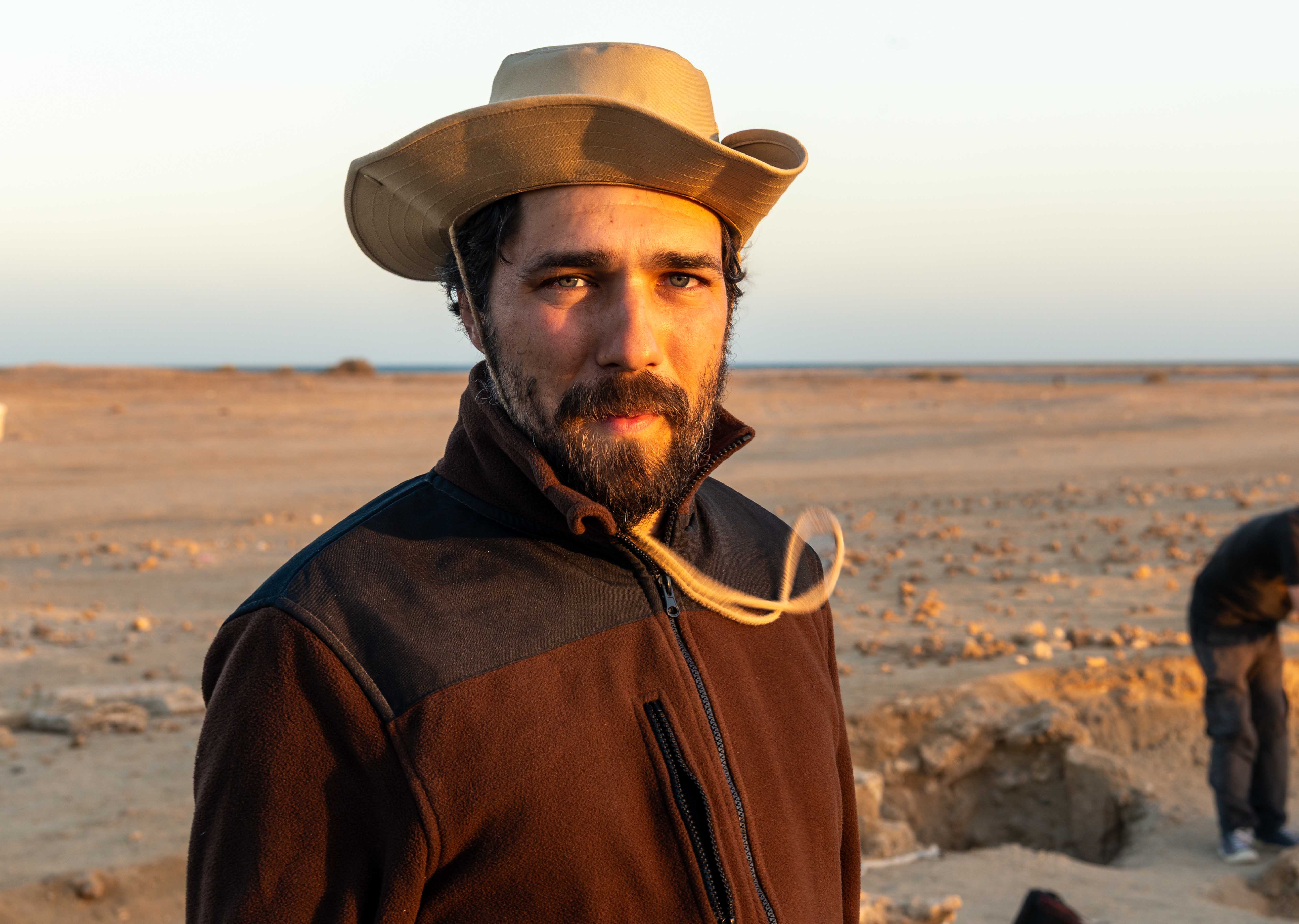
Jerzy Trzebiński
Archaeologist
Department of Archaeology, Wawel Royal Castle, Kraków
jurektrzebinski@gmail.com
Jerzy Trzebiński is a dedicated archaeologist with extensive field experience in excavations and rescue archaeology. Currently employed at the Department of Archaeology at Wawel Royal Castle, his work encompasses archaeological excavations, desk research, 3D modeling, and GIS development. He holds both a BA and an MA in Archaeology from Jagiellonian University and is a PhD candidate focused on the development of fortified settlements in the Late Bronze Age. Jerzy’s research interests span Bronze Age, landscape, and settlement archaeology, and he has contributed to projects across Poland, Slovakia, Georgia, and beyond. Our project in Berenike draws upon his experience as a trench supervisor.
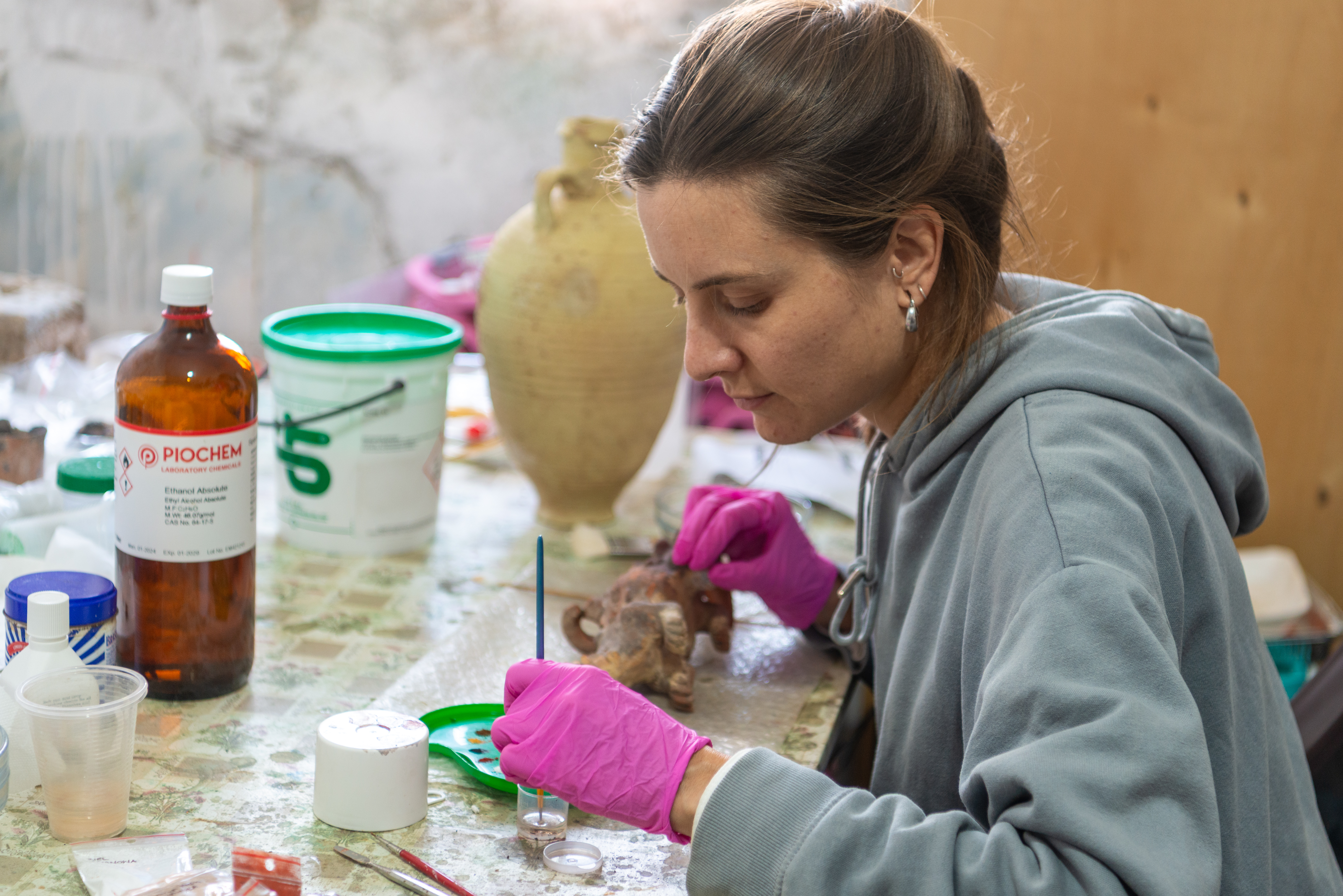
Julia Walentyna Soroko
Art Conservator
National Museum in Szczecin
julia.soroko@gmail.com
Julia Soroko is an art conservator specializing in the conservation and restoration of ceramics, stone, wall paintings, and architectural elements. She holds an MA in Art Conservation and Restoration from Nicolaus Copernicus University in Toruń and an MSc in Biotechnology from the West Pomeranian University of Technology. With extensive experience gained through both museum and freelance projects, Julia has contributed to the preservation of a diverse range of objects from Berenike.
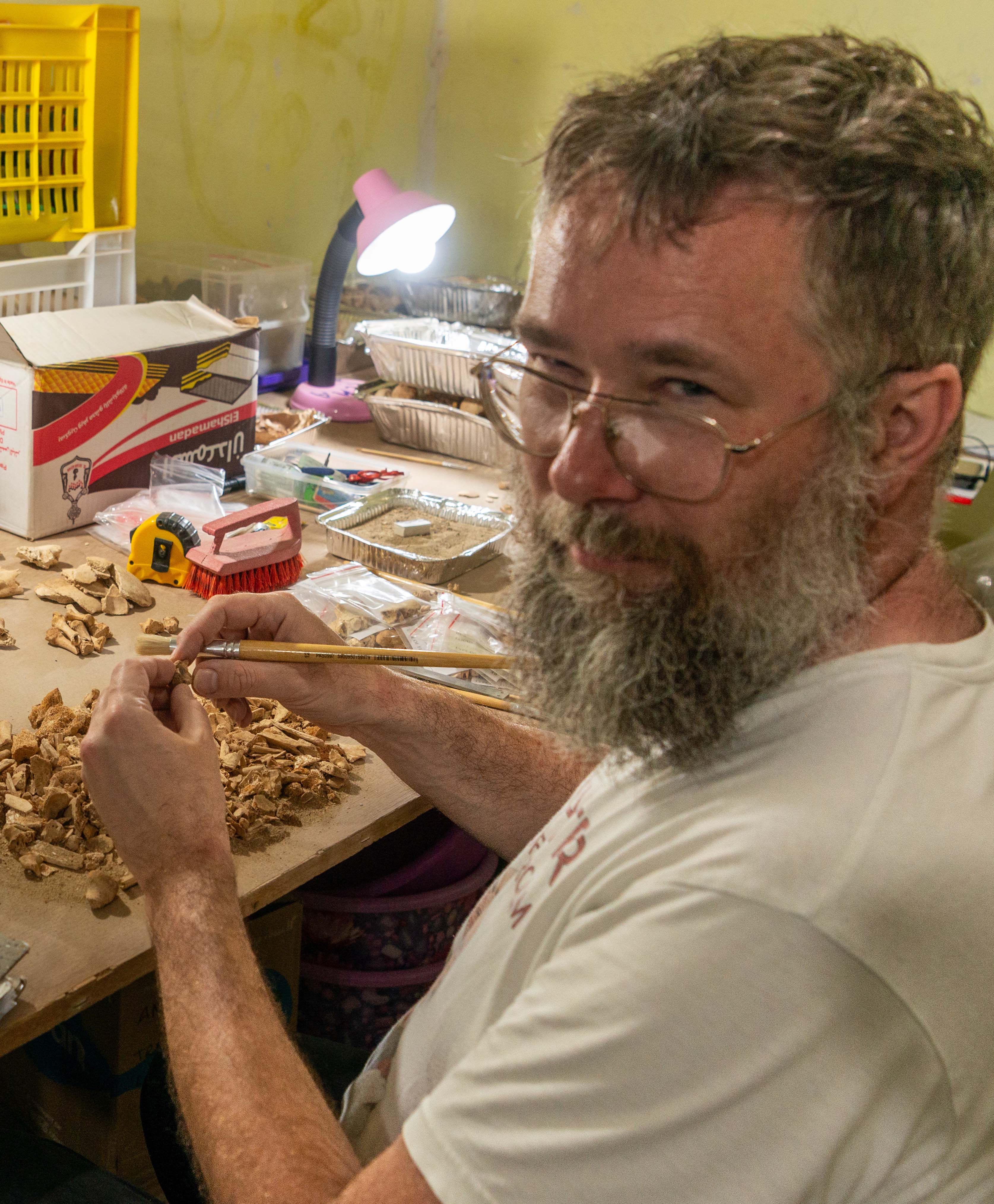
Arkadiusz Sołtysiak
Bioarchaeologist
Faculty of Archaeology, University of Warsaw
a.soltysiak@uw.edu.pl
Professor Arkadiusz Sołtysiak is a bioarchaeologist specializing in the study of human remains from the Near East. He earned his MA in archaeology in 1998, followed by a PhD in 2001, and habilitation in 2011, all from the University of Warsaw. Currently, he serves as a professor and vice-dean for research and development at the Faculty of Archaeology, University of Warsaw.
With extensive experience in analyzing human remains from approximately 110 archaeological sites across Syria, Iran, Iraq, Kuwait, Lebanon, Armenia, Egypt, Turkey, Italy, and Poland, Professor Sołtysiak has contributed significantly to our understanding of ancient human populations. His research interests encompass bioarchaeology of the Near East, statistical and classification methods in archaeology, history of Mesopotamian religion, and archaeoastronomy.
In Berenike, Professor Sołtysiak is responsible for the osteological analysis of human remains retrieved from the burials in the Blemmyan necropolis, providing insights into the health, lifestyle, and cultural practices of this ancient community.
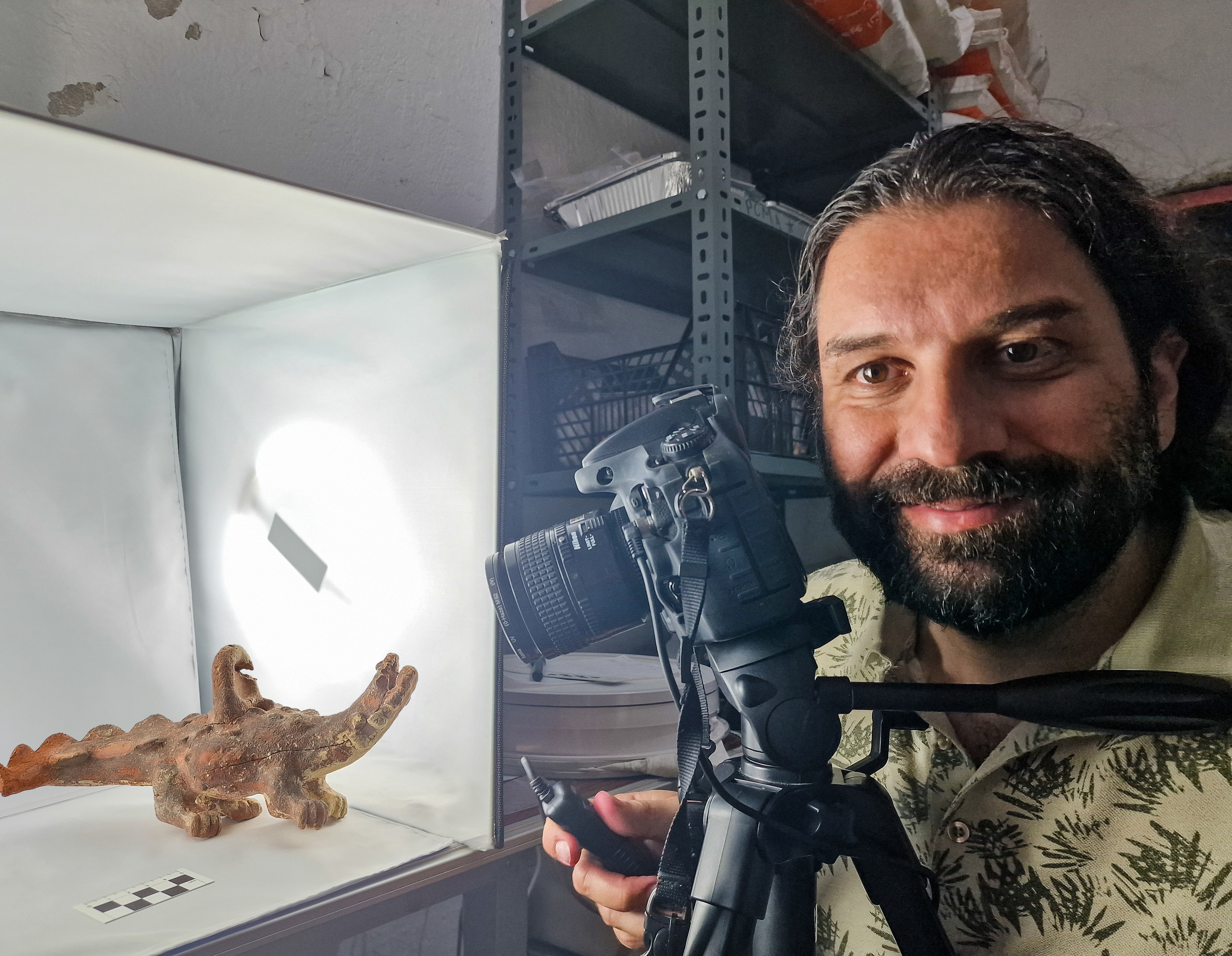
Raül Soteras
Photographer and Lab Technician
Institute of Mediterranean and Oriental Cultures, Polish Academy of Sciences
www.raulsoteras.com
Raül Soteras is a professional photographer specializing in archaeological and environmental documentation, based in Berlin. He has extensive experience in scientific photography and laboratory work, having collaborated with institutions such as the German Archaeological Institute, the National Museum of Natural History of Paris and the University of Basel since 2013. He has participated in excavations in countries like Italy and North Macedonia and is currently working as a freelance photographer. In Berenike, he was responsible for the photographic documentation of archaeological artifacts and ecofacts.
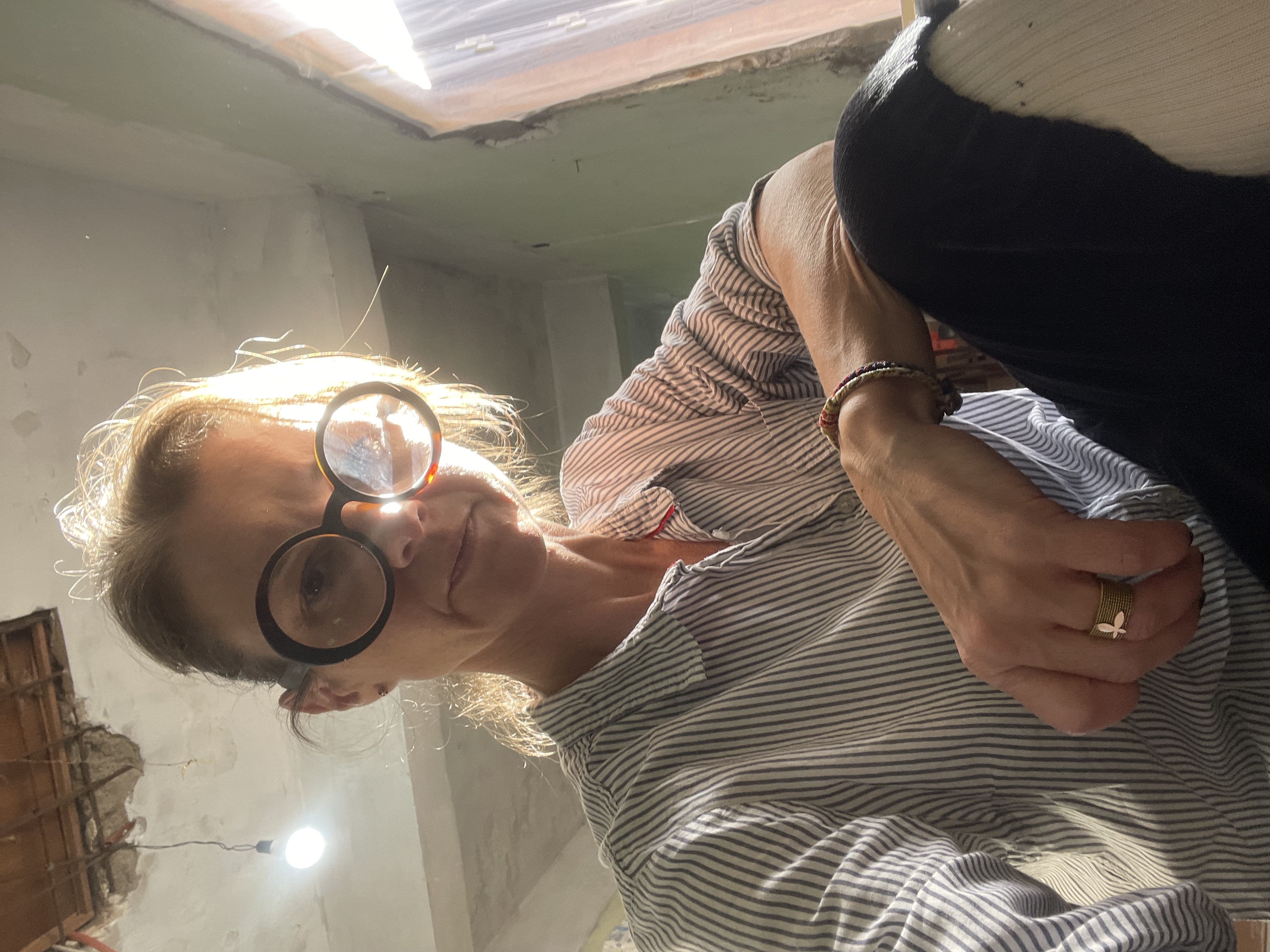
Joanna Then-Obłuska
Archaeologist
Antiquity of Southeastern Europe Research Centre, University of Warsaw
j.then-Obluska@uw.edu.pl
Professor Joanna Then-Obłuska is an archaeologist specializing in the study of beads and personal adornments in the Mediterranean, Northeast Africa, and the Nile Valley. She holds a PhD in Mediterranean Archaeology from Jagiellonian University and obtained her habilitation at the University of Warsaw in 2020.
She has extensive fieldwork experience, having participated in archaeological missions of the Polish Centre of Mediterranean Archaeology in Egypt and Sudan since 2004, as well as in Ethiopia as part of the SolZag project. Her research focuses on the trade, craftsmanship, and cultural significance of beads in ancient societies.
At Berenike, she will be responsible for the analysis and documentation of bead finds.
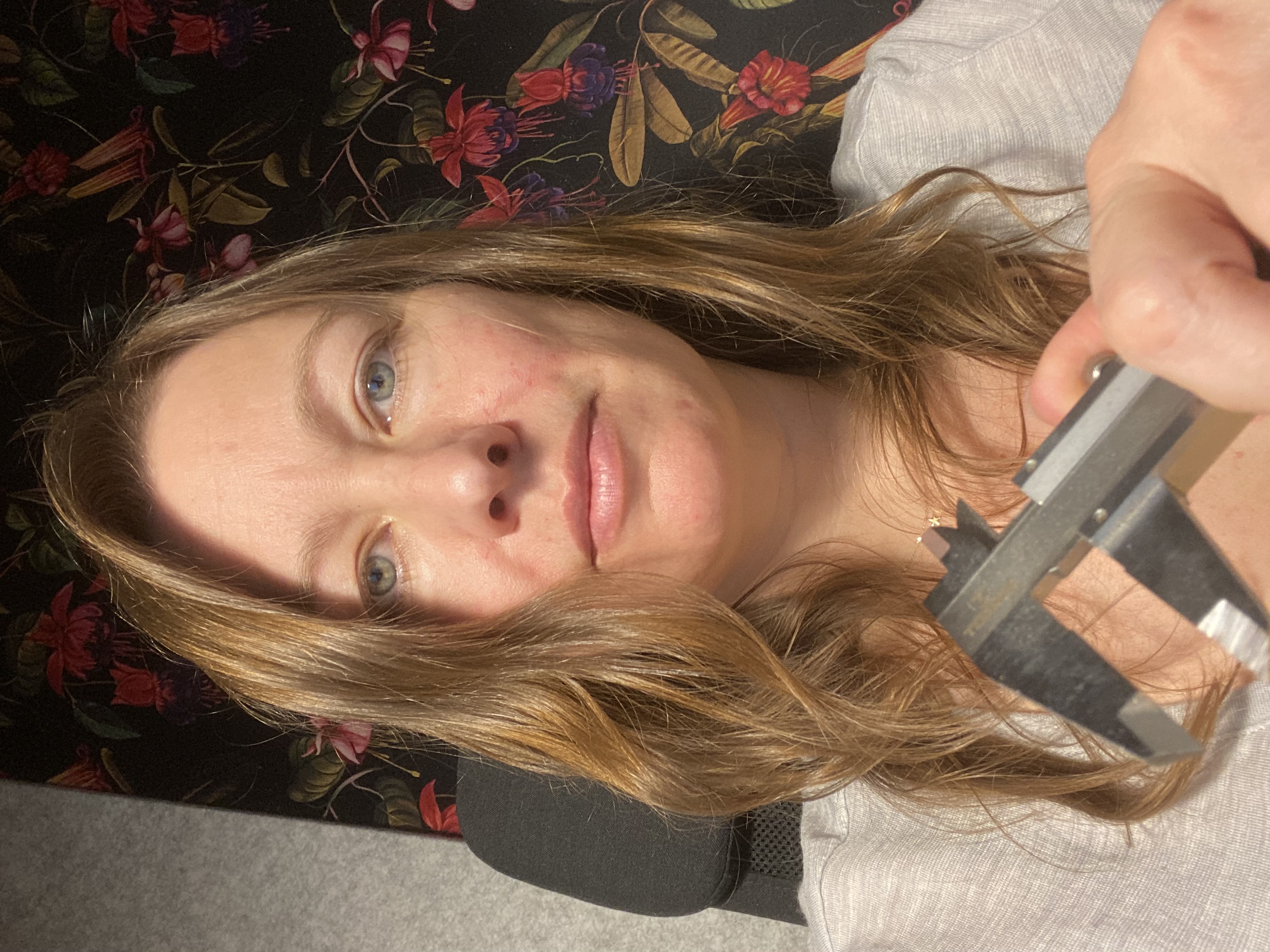
Agnieszka Szulc-Kajak
Archaeologist
Polish Centre of Mediterranean Archaeology, University of Warsaw
a.szulc-kajak@uw.edu.pl
Agnieszka Szulc-Kajak is an archaeologist specializing in metal artifacts and small finds from the Near East. She has participated in numerous international research projects, including excavations in Armenia, Egypt, Lebanon, and Turkmenistan.
At Berenike, she is responsible for the analysis and documentation of metal artifacts from post-Roman necropolis.
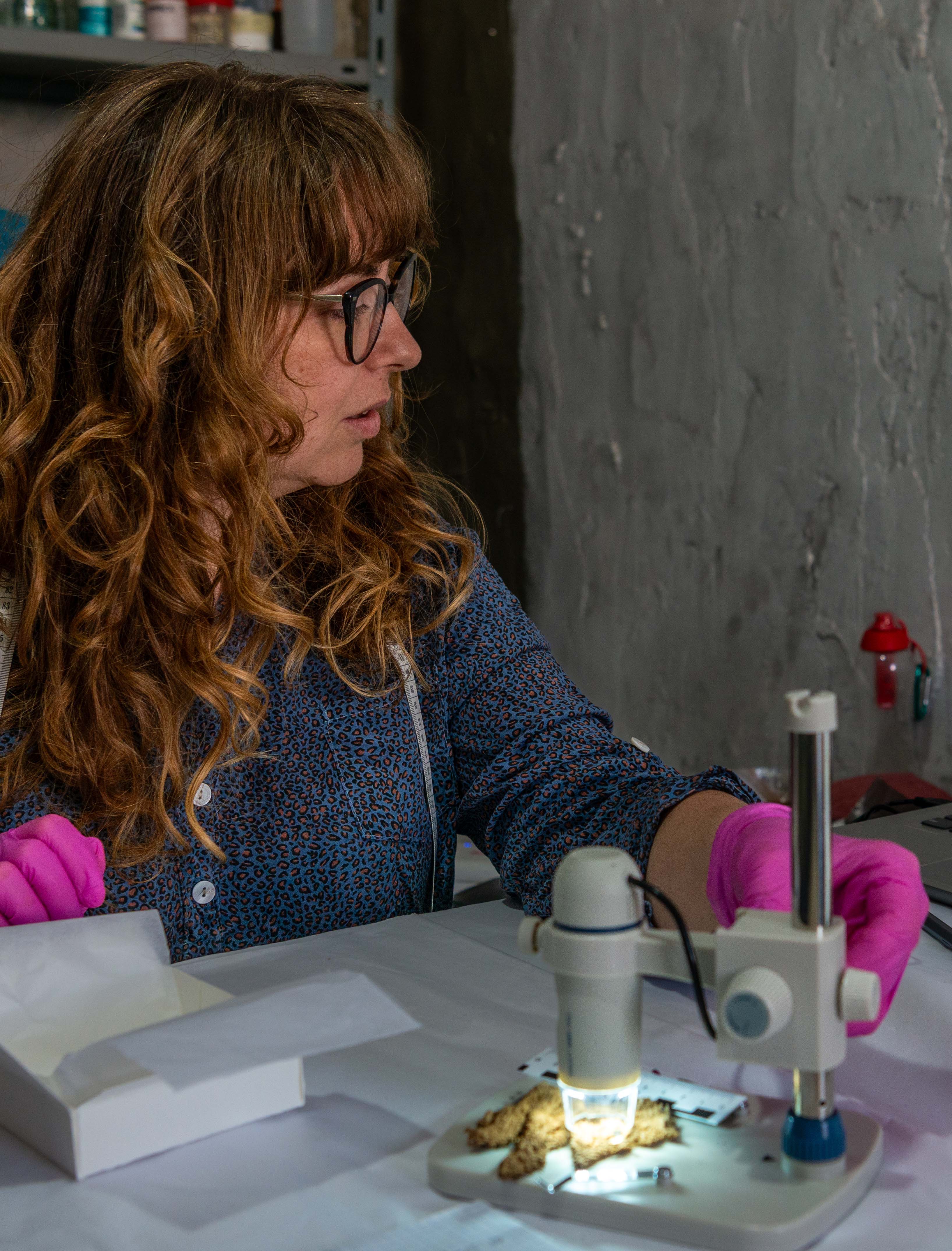
Magdalena Majorek-Lipowicz
Archaeologist and Conservator
Laboratory of Dating and Conservation of Artifacts, University of Lodz
magdalena.majorek@uni.lodz.pl
Dr Magdalena Majorek-Lipowicz is an archaeologist and conservator specializing in the analysis and preservation of archaeological textiles, metal, leather, and bone artifacts. She holds a PhD in archaeology from Nicolaus Copernicus University in Toruń, where she focused on wooden coffins from crypts as a source for studying post-medieval funeral rites. Additionally, she has a background in physical geography, with expertise in soil science and landscape development.
With over 15 years of experience, Dr Majorek-Lipowicz has participated in numerous research projects related to sacred sites, urban archaeology, and historical burial practices. She is particularly interested in application of modern documentation and conservation techniques in artifact preservation.
In Berenike, she is responsible for the conservation of excavated textiles, ensuring their proper documentation, stabilization, and long-term preservation.
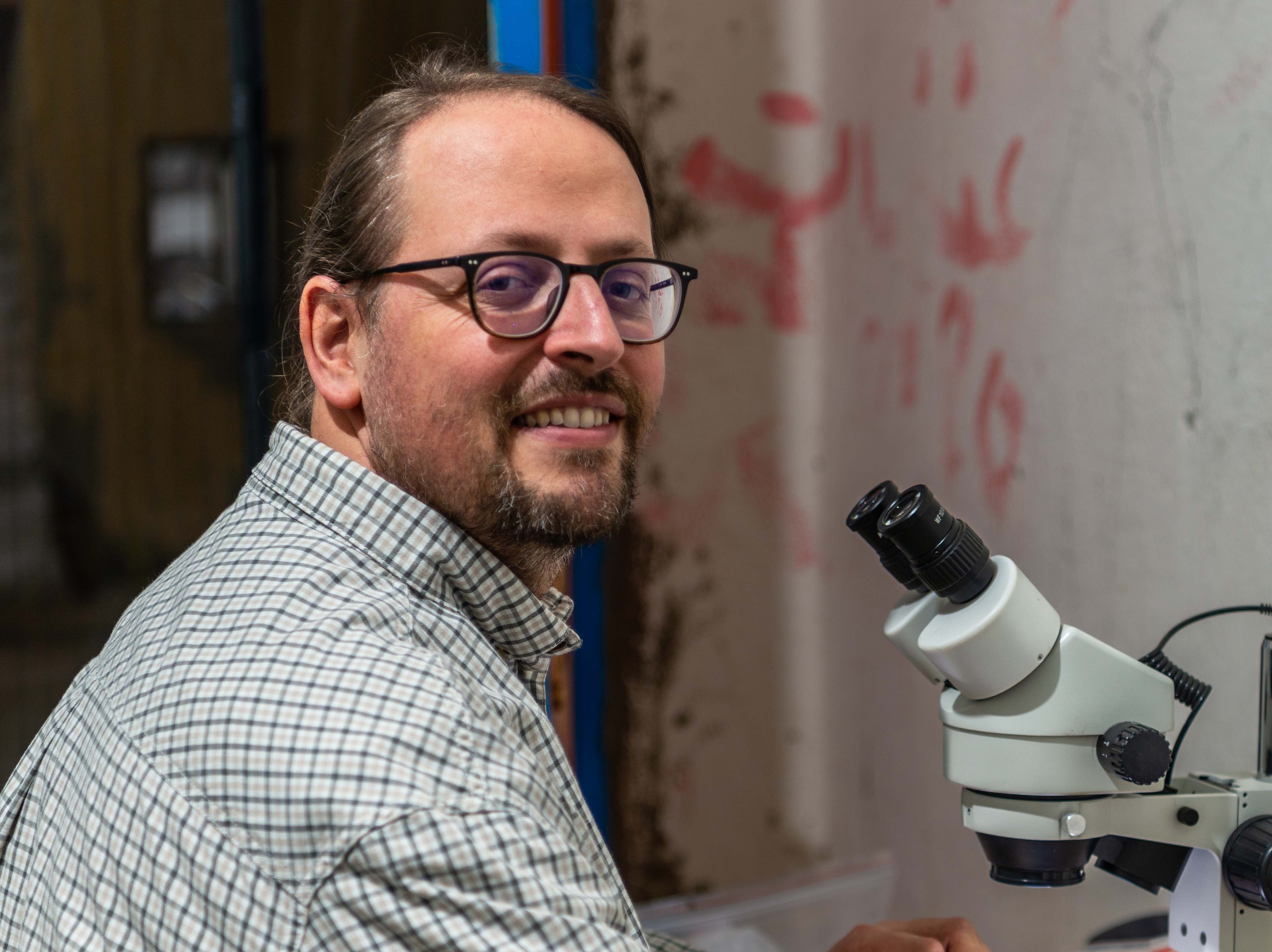
Ferran Antolín
Archaeobotanist
German Archaeological Institute, Berlin & University of Basel
ferran.antolin@dainst.de
Dr. Ferran Antolín is Head of the Natural Sciences Department at the German Archaeological Institute (DAI) in Berlin and an Adjunct Professor for Archaeobotany at the University of Basel. He investigated numerous sites from Western Europe and the Balkans, and has lately worked in several sites in North Africa and Asia. The sites mostly date between the Neolithic and the Medieval period. His research is characterized by the integration of archaeobotanical data with other archaeological and environmental evidence to investigate farming systems, trade and the role of wild plants in the diet with the goal of understanding resilience and adaptation to climate change in past agricultural societies.
His recent work includes archaeobotanical studies at Tuna el-Gebel and Elephantine in Egypt. In Berenike, he is studying archaeobotanical remains from the post-Roman necropolis.
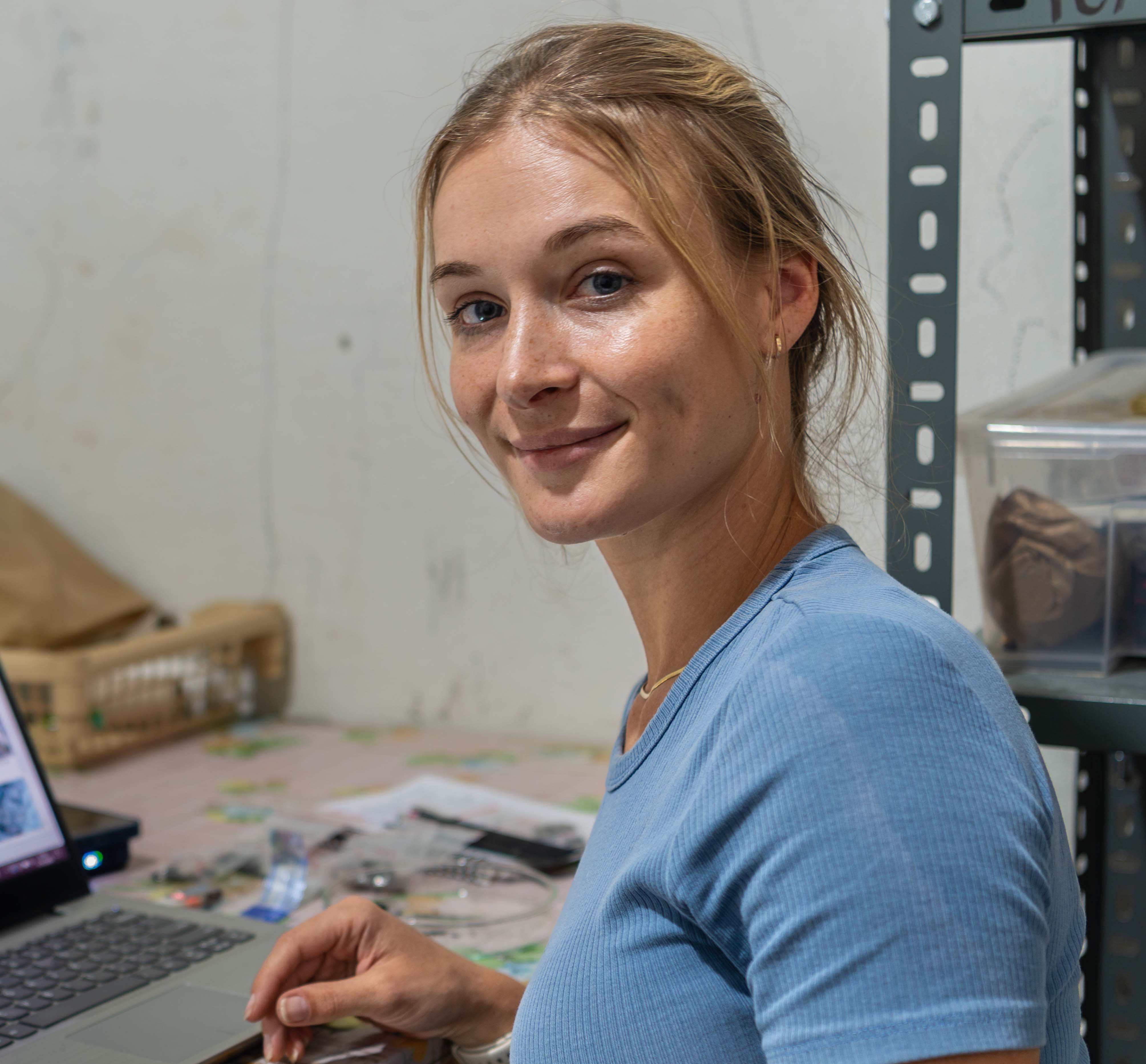
Jessica Zuzanna Izak
Archaeobotanist
German Archaeological Institute, Berlin
j.izak@gmx.net
Jessica Zuzanna Izak is a researcher at the German Archaeological Institute (DAI) in Berlin, specialising in archaeobotany. She holds an MA in archaeology and natural sciences from the University of Basel and a BA in Egyptology from the University of Munich. She is pursuing her PhD at the University of Leipzig. Her work focuses on the analysis and interpretation of plant remains from archaeological sites. She has conducted archaeobotanical research at sites such as Elephantine (2023–2024) and Tuna el-Gebel (2018–2022). In Berenike, she is studying archaeobotanical remains from the post-Roman necropolis.
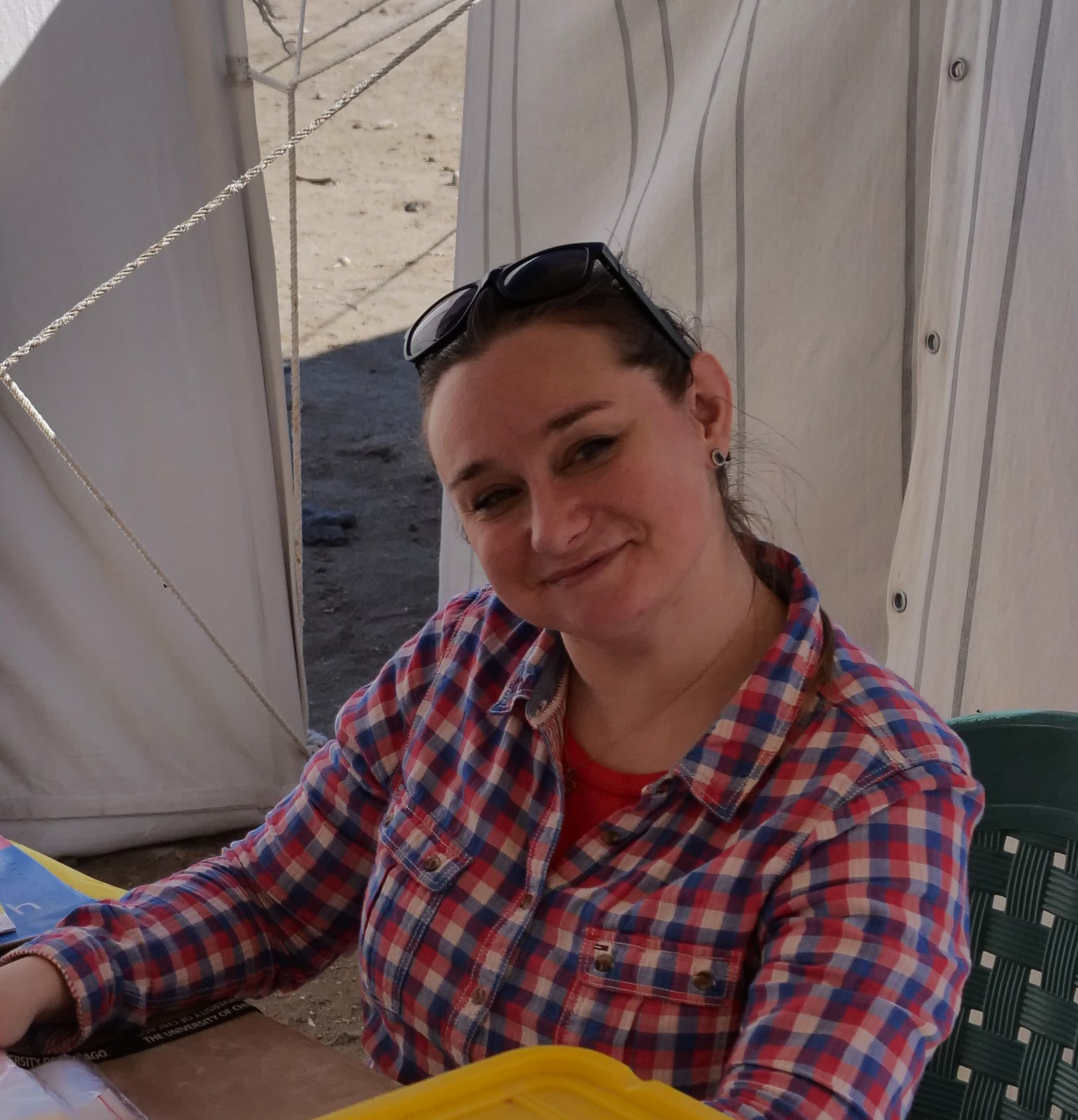
Katarzyna de Lellis-Danys
Pottery specialist
The Polish Centre of Mediterranean Archaeology, University of Warsaw
National Museum in Warsaw
k.danys.erc@uw.edu.pl
Dr Katarzyna de Lellis-Danys is an archaeologist with broad-ranging expertise in the Nile Valley's socio-economic research of past societies based on ceramic studies.She focuses on the Late Antiquity to pre-modern times trade, cultural relations between populations, and knowledge transfer between pottery craftsmen. Her involvement in the fieldwork concentrates in Egypt and Sudan, where she has participated in various projects. Recently, she was a pottery team leader in the ERC project “UMMA”, founded by the European Research Council to study the Christian-Islamic liminal phase in Old Dongola, Sudan. At Berenike, she is conducting research on the pottery findings from the Animal Cemetery as a member of the project„Non-humans in Berenike society. Archaeozoological data for a discourse on ancient identity and value” (National Science Centre grant nr UMO-2021/43/B/HS3/02749).
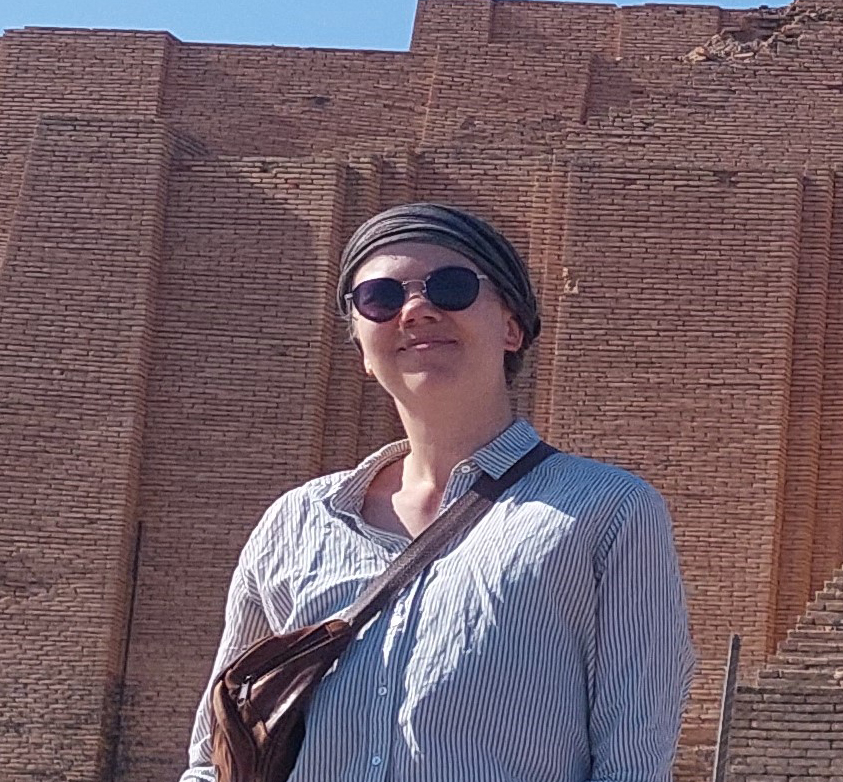
Nina Maaranen
Osteoarchaeologist, human osteology
nina.maaranen@gmail.com
Dr Nina Maaranen is an archaeologist specialised in human osteology. Her research focuses on the eastern Mediterranean and the ancient Near East, including field work in Lebanon, Egypt and Iraq. She has utilised bioanthropological methods together with statistical techniques to study skeletal assemblages across the region to reconstruct population histories as well as individual life histories, exploring themes such migration and mobility, palaeodemography and health.
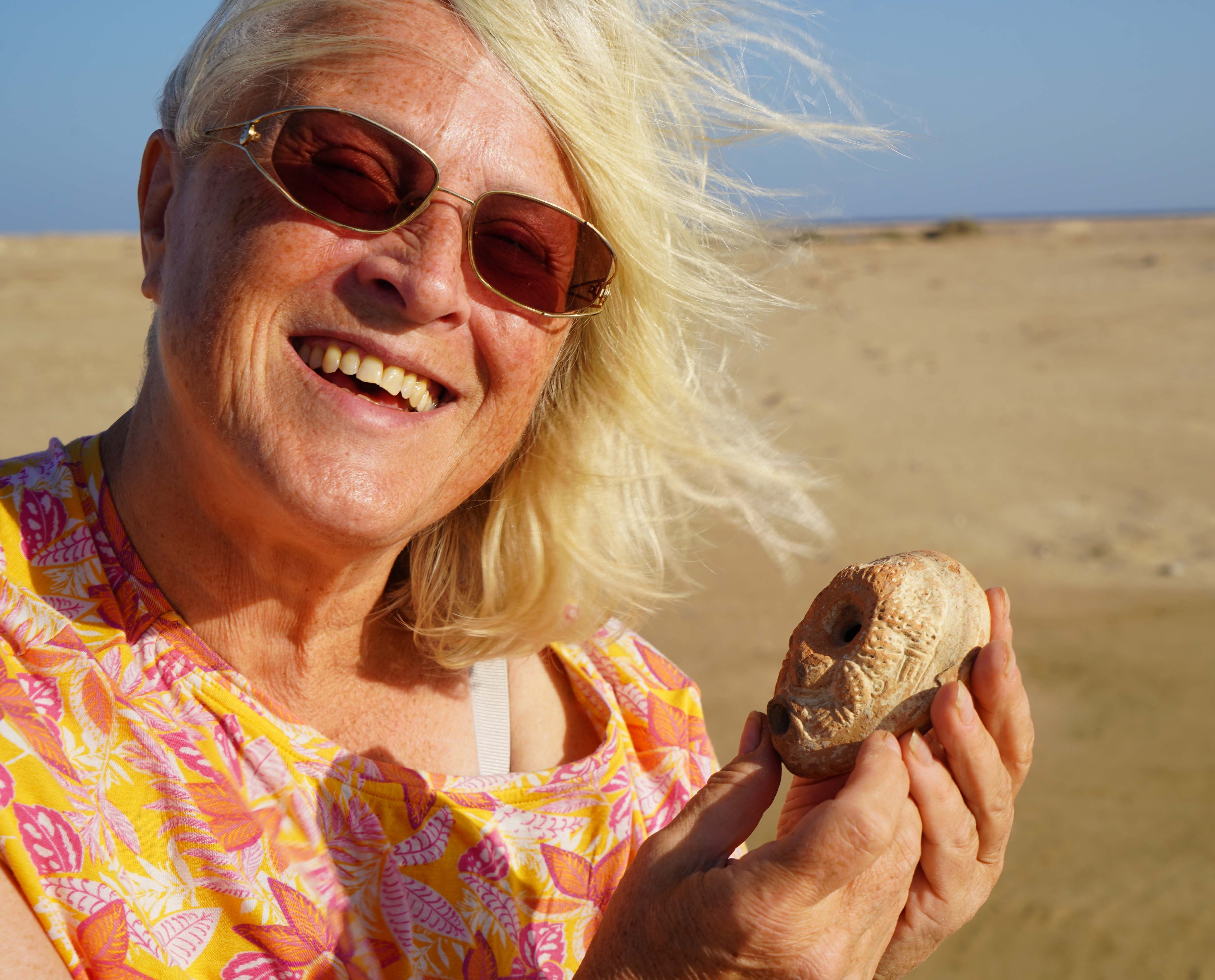
Iwona Zych
Archaeologist
The Polish Centre of Mediterranean Archaeology, University of Warsaw, emerita
i.zych@uw.edu.pl
“In small things forgotten…”, registrar of the Berenike project and much more. Involved with the project since 2001, she has spent more time than anyone in Berenike and around Berenike, with the exception of Steve Sidebotham, with whom she codirected the expedition for 13 years, from 2008 until 2020. Now retired from the logistics and everyday administrative worries, she is still at the heart of things more than ever: mentoring the Necropolis project as well as the Animal Cemetery team. She is also the author of Berenike’s finds registration system and is thus contributing to the publication of the Berenike Isis Temple Project. Currently working on publishing the clay oil lamp assemblage from the excavations. Apart from Berenike, she has worked—as trench supervisor, registrar, small finds specialist, expert on clay oil lamps and worked wood artifacts, as well as logistics person and head of the team—at a number of sites excavated by the Polish Centre of Mediterranean Archaeology University of Warsaw: Marina el-Alamein, Naqlun, Alexandria Kom el-Dikka in Egypt and Saruq al-Hadid in the UAE.
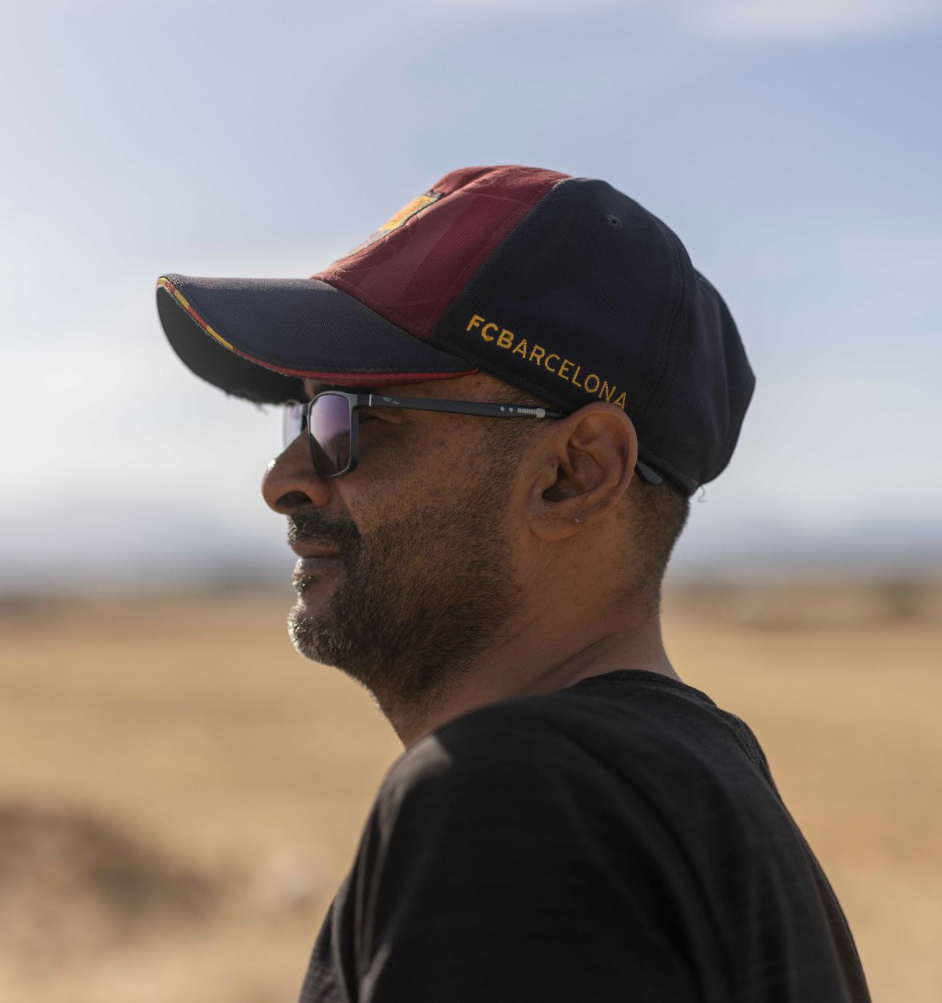
Mahmoud Ahmed Hussein
Project manager
Director of Expeditions and Excavations at the Ministry of Tourism and Antiquities, Red Sea Antiquities Area
mahmoudbarna@gmail.com
Mahmoud Ahmed Hussein extensive experience encompasses collaborative efforts with numerous archaeological missions operating within the Red Sea region. Mahmoud's dedication and managerial prowess have been invaluable to The Berenike Project, where he has played a pivotal role in providing administrative support and strategic leadership. Widely regarded as one of the most dedicated individuals involved in our research endeavors, Mahmoud's contributions have significantly enhanced the project's success and impact.
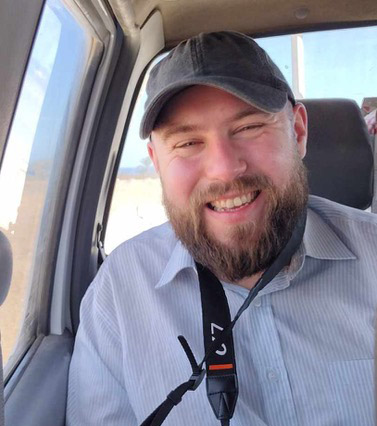
Kacper Żochowski
Photographer, papyrologist
University of Warsaw
kk.zochowski@uw.edu.pl
In The Berenike Project Kacper Żochowski deals with photographic documentation of finds, as well as capturing daily struggle and happy moments of archaeological mission. Apart from being a photographer, he is a PhD student in Interdisciplinary Doctoral School UW (law and archaeology) with a project focusing on litigation in Roman Egypt as seen through papyrological evidence. His main interests are Greco-Roman antiquity, legal praxis in ancient Egypt, and linguistics, especially of Latin and Greek. During his studies (BA in classical philology, MA in law) he participated in excavations in Marea. In 2024 he joined the Berenike team.

Mariusz Gwiazda
Archaeologist
The Polish Centre of Mediterranean Archaeology, University of Warsaw
m.gwiazda2@uw.edu.pl
Dr Mariusz Gwiazda specializes in the archaeology of the Greco-Roman Eastern Mediterranean. His current work focuses on mortuary archaeology, craft production and Late Antique cultural transformations. He participated in archaeological projects conducted in Lebanon, Kuwait, Turkey and Egypt and has joined the Berenike Project in 2011.

Jerzy Oleksiak
Pottery specialist
The Polish Centre of Mediterranean Archaeology, University of Warsaw
jerzy.oleksiak96@gmail.com
Jerzy Oleksiak (MA, PhD researcher) is a ceramicist and arabist who has been working on the Berenike project since 2019. His research focuses on economic integration and dependencies of sites located in the Eastern Desert, Nile Valley, and Indian Ocean. His main area of interest is pottery, which plays a crucial role in studying and understanding the scale and vectorization of trade in the Late Antique Red Sea - a sphere of overlapping economic influence between the Eastern Mediterranean and Western Indian Ocean markets. He has worked as a ceramicist on various projects in Cyprus, Sicily, Lebanon, Jordan, Egypt, and Saudi Arabia.

Marek A. Woźniak
Archaeologist
Institute of Mediterranean and Oriental Cultures, Polish Academy of Sciences
mawozniak@iksio.pan.pl
In Berenike, Dr. Marek Woźniak is responsible for researching the Hellenistic phase of the cities functioning. Manager of the (now completed) NCN 'Prelude' grant on issues related to the shape, origins and functioning of the Ptolemaic Berenike. He specializes in the archaeology of the Greco-Roman period, with a particular focus on the archaeology of the ancient, maritime trade and communication routes of the Indian Ocean and sites on the Asiatic and African peripheries of the Hellenistic world. Member of archaeological missions in Turkmenistan, Cyprus, Kuwait, United Arab Emirates, Sudan and, of course, Egypt (Alexandria, Sakkara, Berenike). In the 'Berenike Project' since 2009.

Emilia Smagur
Archaeologist, numismatist
The Polish Centre of Mediterranean Archaeology, University of Warsaw
e.smagur@uw.edu.pl
Dr Emilia Smagur is a director of the Berenike Project. She is also responsible for the documentation and analysis of coin finds. Her main field of expertise is archaeology of South Asia, the Indian Ocean trade as well as Indian and Roman coinage. Her current work focuses on the value and use of coins in the Indian Ocean ports, as well as on the agency of imports. She participated in many archaeological projects conducted in India, Nepal, Cambodia, Cyprus, Israel, Bulgaria and Ukraine and has joined the Berenike Expedition in 2021.

Sana Chowdhry
Archaeologist
Independent Researcher
snc28@pitt.edu
Sana Chowdhry (MA RPA) is an independent researcher with archaeological experience in the commercial and non-profit sector. She has conducted archaeological field work in North America, Egypt, Jordan, England, and Saudi Arabia. Her research expertise and interests lie in the archaeology of Arabia, pre-modern trade networks of the Red Sea & Indian Ocean, pre-Islamic belief systems, and antiquity laws. Her technical expertise is in field surveying, GPR, and GIS analysis. She is currently a heritage management professional and freelance archaeologist based in the USA and is delighted to serve as a trench supervisor since the 2023 season of the Berenike Project.

Mahmoud Samir Hussein
Conservator
mahmoudsamir.arch@gmail.com
Dr. Mahmoud Samir Hussein is a researcher in antiquities restoration. He is responsible for restoring the archaeological small finds discovered in Berenike. He holds the position of Director of Restoration of the Tomb of Ramses II in the Valley of the Kings under the mission of Dr. Zahi Hawass. His main area of expertise is the restoration of archaeological finds and murals. He also holds the position of restoration officer at the excavations of New York University in the Dakhla Oasis and the excavations of the Greek mission, the Center for Hellenic Studies in Alexandria, and director of the Royal Art Company for the restoration of palaces and monuments.

Renata Kucharczyk
Archaeologist, glass specialist
Polish Centre of Mediterranean Archaeology; University of Warsaw;
rkucharczyk@uw.edu.pl
She is a glass specialist involved in archaeological projects at various sites in Egypt and in the Mediterranean. Her research focuses on diverse aspects of ancient glass studies: from technology to typology, through distribution and consumption. The chronological extent of her scholarly interests ranges from the Roman period to early Islam and parallels the geographical range. She is primarily engaged in research in Alexandria (Kom el-Dikka). Recently, has also worked on glass finds from the newly discovered temple of Bubastis. In addition, the scope of her research further includes Marina el-Alamein, Marea and the temple of Hatshepsut at Deir el-Bahari, as well as Ptolemais in Libya and Akrai in Sicily.

Alexandra Konstantinidou
Pottery specialist
alexandra.archeo@gmail.com
Dr. Alexandra Konstantinidou is charged with the documentation and analysis of the pottery finds at Berenike. She has a long experience both as pottery expert and field archaeologist, being a member of several archaeological expeditions in Greece and Egypt. She is particularly interested in monastic archaeology, ancient technology and material culture as well as in archaeological theory.

Marta Bajtler
Archaeologist, amphora stoppers specialist
Institute of Mediterranean and Oriental Cultures, Polish Academy of Sciences
mbajtler@iksio.pan.pl
Field archaeologist specializing in the ancient economy and maritime archaeology. Her current work focuses on architecture and urban planning of the site, mainly on the relation between main city roads and public buildings. Also responsible for documentation and analysis of amphorae stoppers. Since 2013 a member of "The Berenike Project".